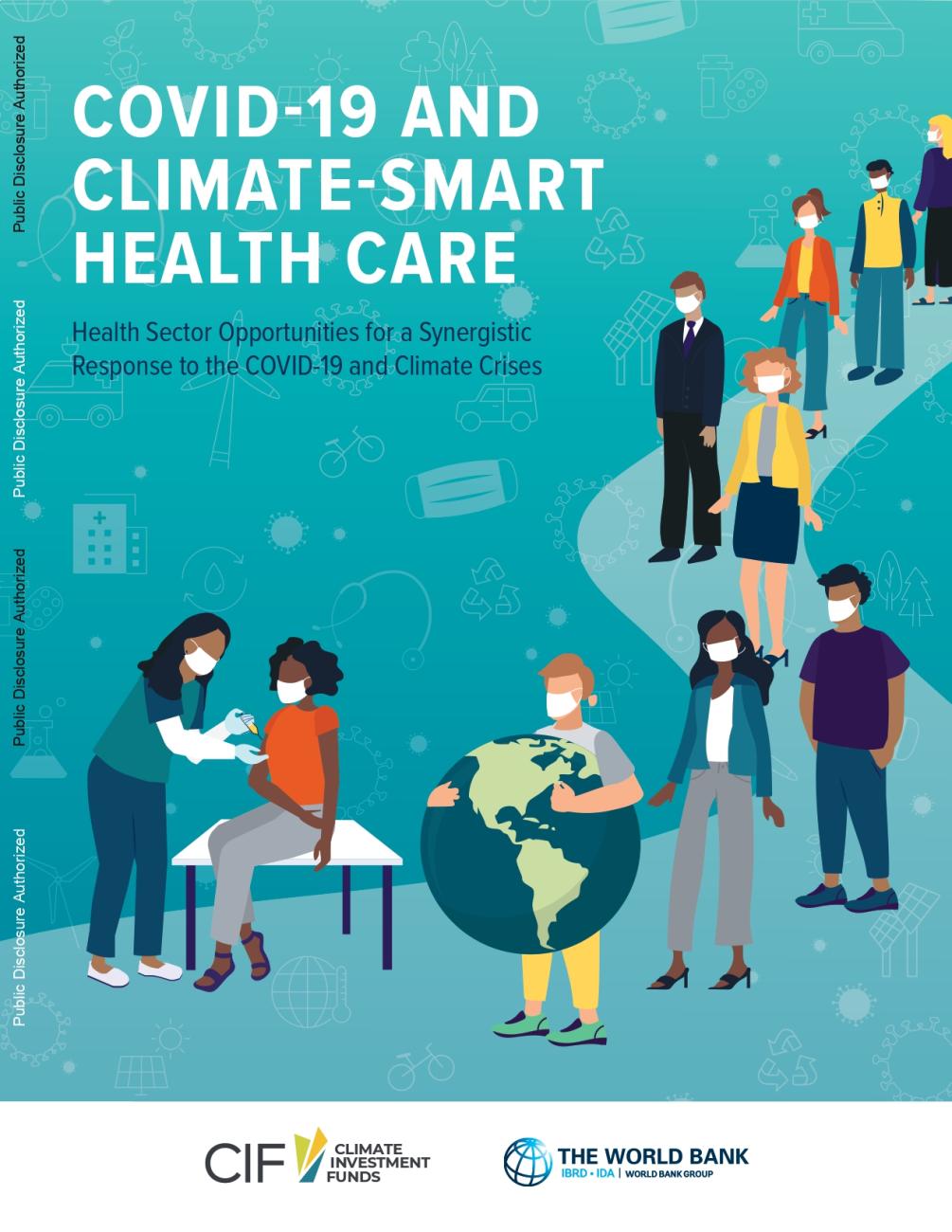A new report from the World Bank, Health, Nutrition and Population Global Practice, coauthored by Health Care Without Harm, and supported by the Climate Investment Funds (CIF) focuses on how low-carbon and climate-resilient health solutions present opportunities to tackle the converged crises of the current pandemic, those in the future, and climate change.
The report examines how vulnerable communities– the elderly, people with preexisting or chronic conditions (especially related to respiratory illnesses), ethnic minorities, indigenous people, and those experiencing poverty are disproportionately impacted by COVID-19 and climate change impacts. It also looks at how the two crises laid bare the chronic capacity deficiencies in managing these public health threats.
Despite these immense challenges, the report offers synergistic interventions for low- and middle-income countries to enhance health system resilience during the COVID-19 crisis, future pandemics, and climate change impacts. Many of these interventions can also help limit health sector emissions by decoupling progress toward Universal Health Care (UHC) from global environmental impacts. Case studies from seven countries demonstrate how climate-smart solutions benefited health system responses to COVID-19 and climate disasters. Health Care Without Harm produced case studies from Colombia, India, Nepal, and the Philippines.
The report can help guide ongoing and future activities and investments for pandemic mitigation to facilitate climate-smart UHC. The report is also for leaders and operational teams in multilateral development banks (MDBs) and other development finance institutions, particularly those in the areas of health, nutrition, and population, and nongovernmental organizations, ministries of health and health agencies, and other policymakers committed to building back better and fairer.
“The health sector and everyone that supports it, have an unprecedented opportunity to integrate covid recovery, decarbonization and resilience as mutually reinforcing parts of the transformation required to be truly fit and ready for our healthy future,” said Sonia Roschnik, International Climate Policy Director, Health Care Without Harm
